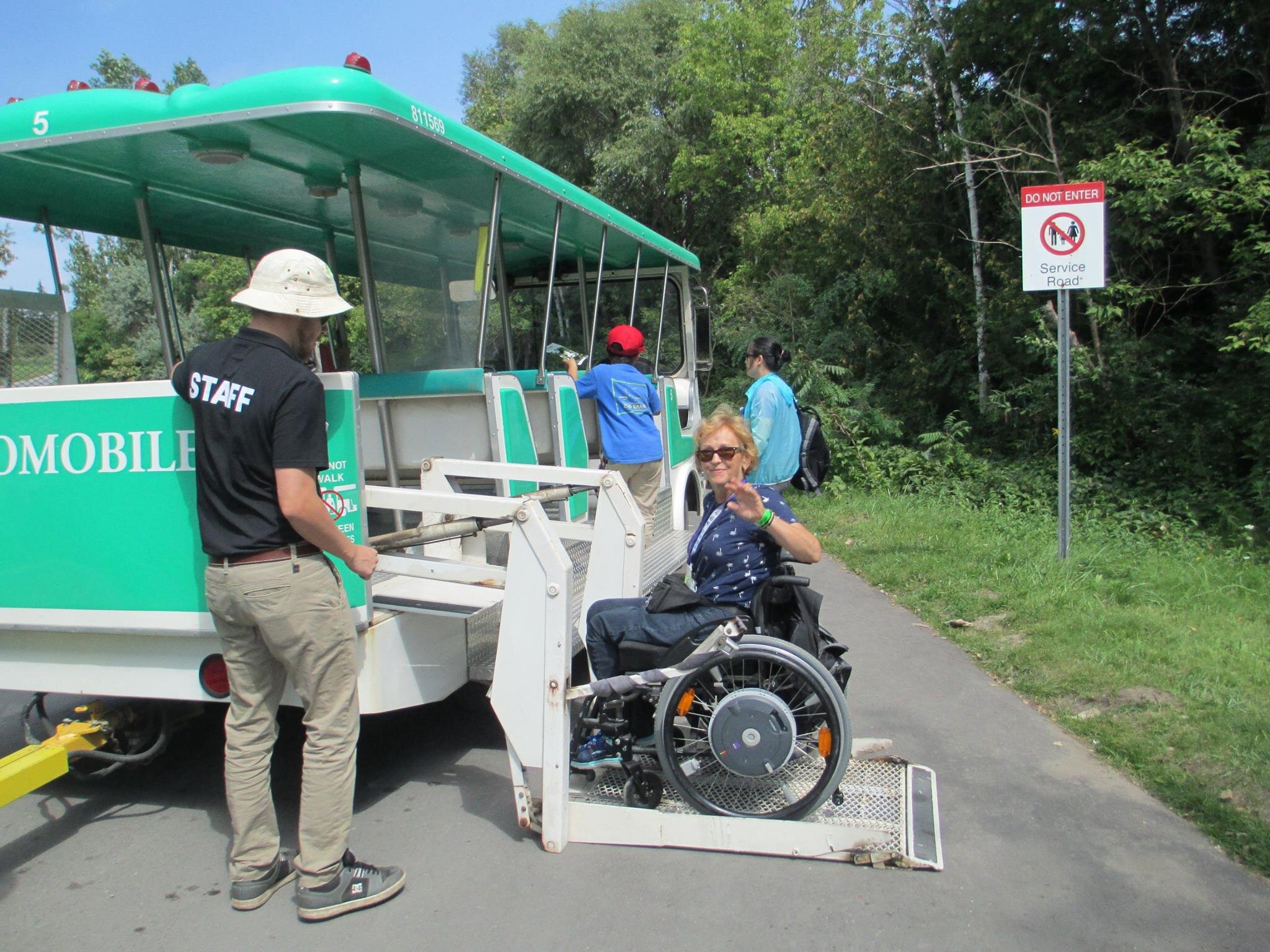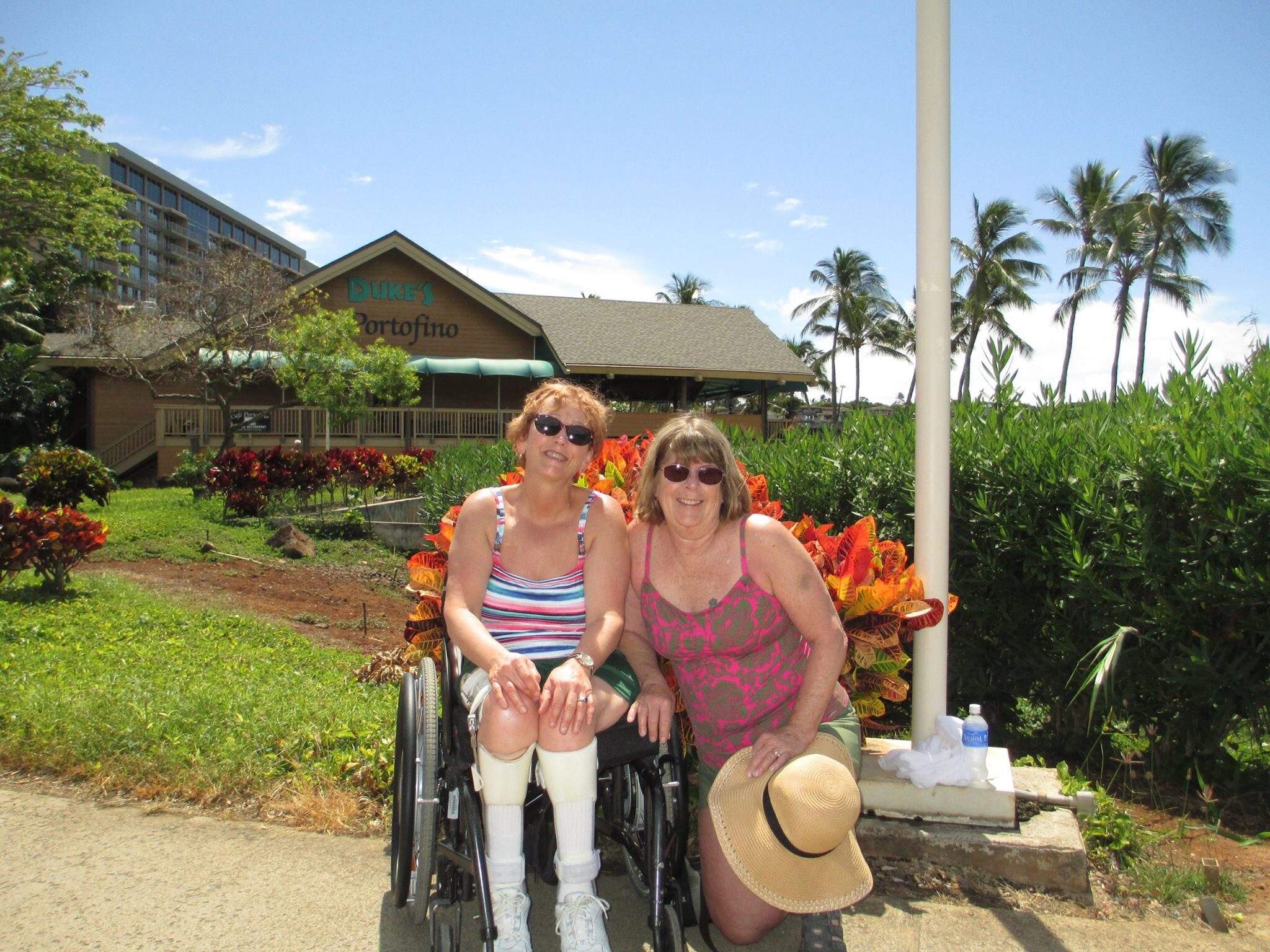Donna’s Travels
I hope everyone is well and safe during these difficult times. I'm Donna King, I was injured more than forty years ago. I have low-level incomplete paraplegia. In this short blog, I'd like to share my success stories and challenges while traveling. Travel and adventure has provided me with an excellent source of joy. Traveling requires more research and planning for disabled individuals. There are many factors to take into consideration such as lodging, transportation and accessible attractions just to name a few.
As an individual living with a disability, I have found that ongoing communication regarding accessibility is key to a successful vacation. When booking a hotel, resort, or cruise, I prefer to go directly to the source and skip using a third party. This makes future communication easier and more direct. Often third party vendors are not familiar with accessible units and overall accessible features. A third party may book the room then leave it up to the hotel to be sure the room is indeed accessible, which does not always happen. In addition to speaking with a representative from hotel reservations, I follow up with a phone call to a manager at the property to ensure he or she is aware of my requirements. Do you require a roll in shower? Prefer one king bed or two queens? Be assertive. These specifications are requirements and not requests. A room overlooking the garden is a request, accessibility is a requirement. The best chance of accessible accommodations is typically at a larger hotel chain group.
We are very fortunate to have the American with Disabilities Act (ADA) here in the United States. The ADA has brought major improvements in many areas for those living with disabilities. There is room for improvement but we are going in the right directions.
In addition to accessible accommodations, the accessibility of nearby attractions such as museums, parks, historical sites, shopping and dining, are equally important and should be planned ahead of time. Again, research and lots of communication is extremely helpful. Many websites even have a link for accessibility.
Getting into a pool, lake, or ocean is on the top of my list when visiting a sunny warm location. Finding a hotel with a pool that actually has a pool lift that is operational can be a challenge. The ADA requires hotels to have a pool lift, however, some have never been used and hotel staff are unfamiliar with operating it. I've found on more than one occasion the lift batteries haven't even been charged! Now, I inquire while booking, then follow up a few days prior to my stay to confirm that the pool lift is operational and that the battery has been charged. Even asking if a maintenance employee can please check and confirm that the lift is operational is a good idea.
With the exception of Canada and several cruises in the Caribbean, most of my travels have been within our Great Country, including Alaska and Hawaii. I'm a big fan of our National Parks. I've visited Yellowstone, Grand Tetons, Grand Canyon, Arcadia, Denali, Smoky Mountain and Glacier Bay. All offer reasonable accessibility, including some Universal Access Trails and Paths. All of the facilities within the National Parks are accessible and park rangers are helpful with locating accessible trails and best overlooks. Individuals with disabilities receive free admission to all National Parks, however, an Access Pass must be acquired prior to visiting a park. This process can be completed by mail:
https://store.usgs.gov/s3fs-public/access_pass_application.pdf
For enjoying the great outdoors closer to home, Massachusetts has great Universal Trails:
Air and ground transportation is another issue that can throw you a glitch when traveling. Many airlines offer the seats behind first class and extra leg room at no additional charge for disabled travelers. Airlines all have special needs booking representatives that can assist with assigning seating during the booking process. Not all seats in an aircraft have flip up armrests for easy transfers. Some planes have designated ADA seating, which provide the flip up armrests. If you require an aisle chair, this should be arranged ahead of time with the airline. Disabled individuals board and exit last. Be mindful that air crafts do not have accessible restrooms. You may, however, have the option of cathing under a blanket on your lap.
If you have the ability to transfer into a car, the process is easier. Renting an accessible van is expensive. Will you be driving or will a spouse or travel companion be driving? There are many variations of accessible vans out there. Another option is local accessible taxis, although this is a hit or miss.
One mode of travel I find very accessible is cruising. Cruise ships provide excellent accessibility including both cabin and common areas. Many ships have pool lifts. My suggestion is to book accessible shore excursions prior to departure. Often the accessible vehicles provided for shore excursions need to be informed by the cruise line of the need in advance.
Again, cruising within the United States you'll find more shore excursions that are accessible. I've cruised in Alaska and Hawaii and had many options for accessible shore excursions. Accessible excursions are more limited outside of the United States. You need to carefully explore and research each port. Some ports have attractions close to where the ship docks, thus you can just disembark and stroll around without booking transportation. Some travelers enjoy the onboard experience of cruising as much as getting off at each port. Ships provide many forms of entertainment and activities.
“Life is good, life is beautiful. The world is full of beauty and joy, may you find both in your life, whether at home or away.”



